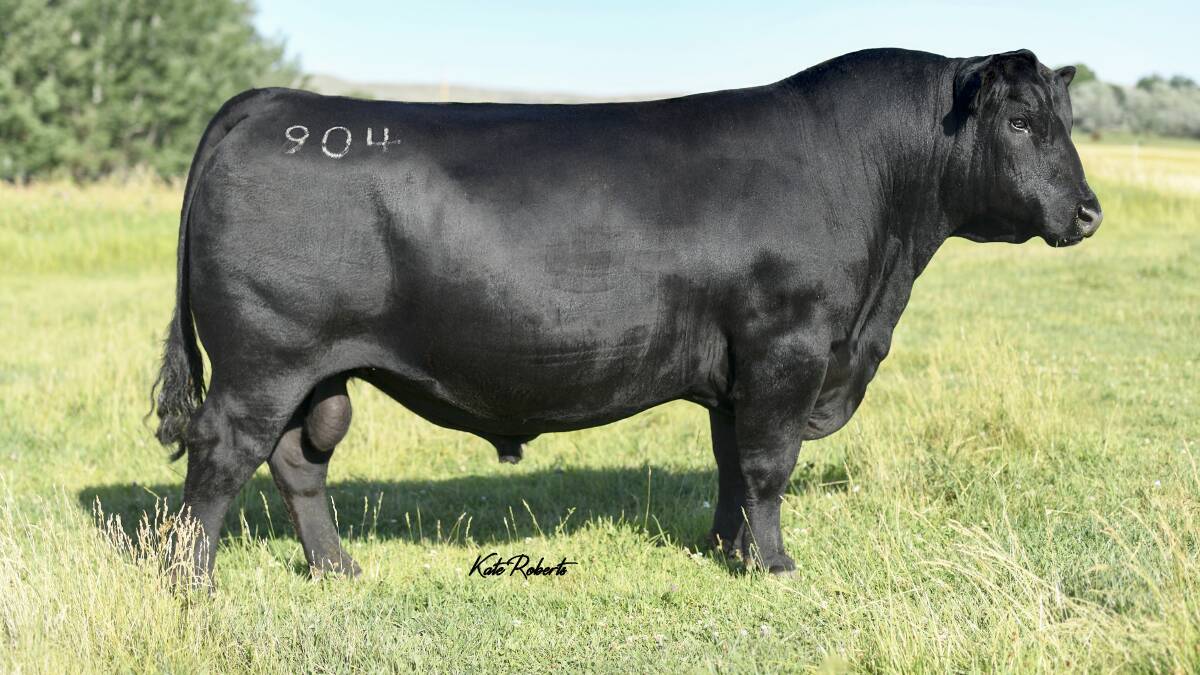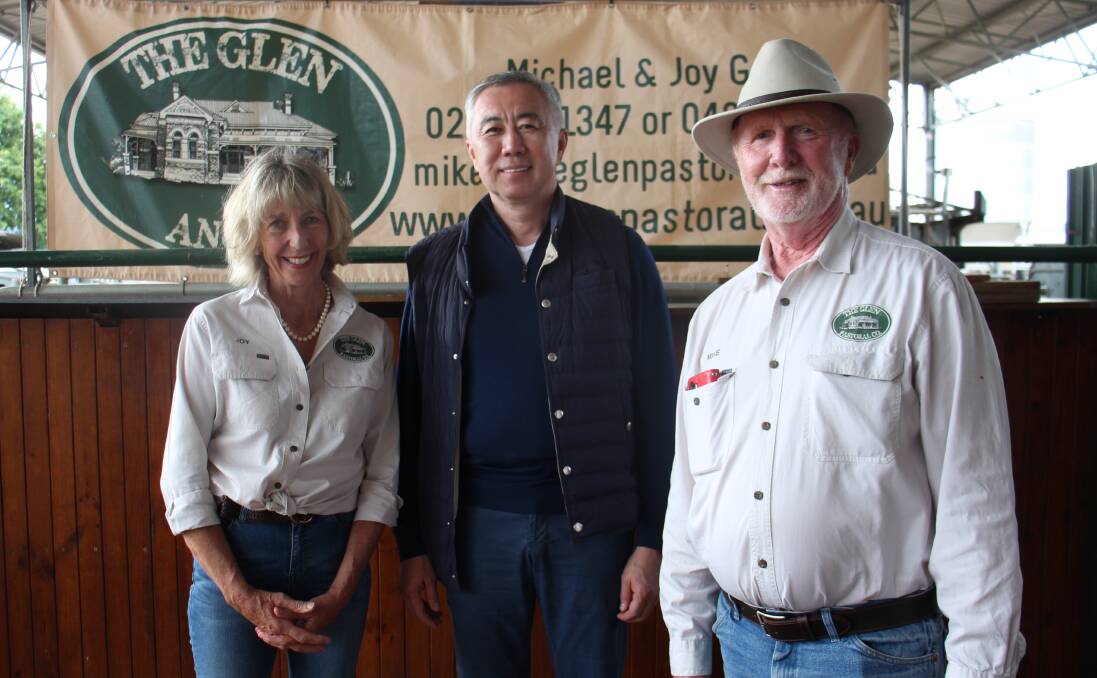Looking to a bright future

This is branded content for The Glen Pastoral
A commercial focus.
This is what The Glen Angus seedstock herd has strived for, and embracing new technologies to assist with genetic improvement and performance recording means the herd is flying higher than ever before.
But it hasn't come about by accident - The Glen's rigorous selection comes from decades in the seedstock industry, and started with Murray Greys.
The Glen began breeding registered cattle when the Murray Grey Society was formed in 1962. The Murray Grey herd, a derivative of the Angus breed, was owned by the family partnership, Mervyn Gadd and Sons, and managed by Mervyn and youngest son Mike until 1985 when the partnership was dissolved.
Mike and his wife Joy took over ownership and management of The Glen herd as part of the family succession plan. They continued with breeding Murray Greys, but they began breeding APR and HBR Angus in 2000.
The Angus breeding program commenced with the purchase of 80 selected females from the Mitta Valley APR herd and 120 selected females from Landfall Angus, Tasmania.
Since commencing the Angus herd, Mike spent 11 years on the Angus Australia board, served two years as president in 2013-14, and chaired numerous board committees, including the Breed Development Committee.
Over the past 20 years, the Grey herd was downsized to make way for the straight-bred Angus, which now makes up 90pc of the seedstock operation.
"The Grey herd is now Angus infused and is also recorded with Angus Australia on the Multi Breed Register and performance recorded along with the Angus herd," he said.
Mike said the entire herd had been parent-verified and analysed by Neogen GS genomics for the past four years, and performance recorded on Angus Group Breedplan for almost 25 years. He said The Glen always had a strong focus on longevity and structure.
"We have resisted fashion or single trait selection at the expense of commercially important traits essential for the success of a self-replacing breeding program. Fertility and calving ease have always been a priority, along with growth and carcase merit."
The performance statistics of the genetics used in the current breeding program reflect this philosophy. The sires of this year's bull offering average in the top 20pc for calving ease and are below breed average for birthweight.

"The average carcase weight estimated breeding value (EBV) of the sires is in the top 10pc (three are in the top 1pc), while the average intramuscular fat is in the top 30pc and the average eye muscle area is above average."
The Glen's focus on structural soundness is also reflected in the breeding program - claw set and foot angle EBVs for the sires currently in use is in the top 25pc of the Angus breed.
The Glen uses fixed time AI to inseminate around 350 cows and heifers each year with leading Australian and USA sires.
"Conception rates with AI and natural matings combined is usually around 95pc with seven-week joinings. Assisted births are rare."
Heifers that do not fall pregnant at 15 months and raise a calf at two years of age are culled.
"These management practices and breeding goals have been strictly adhered to over a long period of time, ensuring that sound structure, longevity, fertility and commercially relevant traits are inherent in the herd."
In December last year, The Glen was selected by a delegation from Kazakhstan to demonstrate its management and production systems of both the seedstock and commercial programs.
In addition to learning about genetic selection, management practices and performance recording of the seedstock herd, the delegation gained insight into backgrounding feeder steers for the feedlot industry and the production of high quality grass-fattened, Meat Standards Australia (MSA) graded Angus Beef.
They inspected drafts of cattle that were later processed at Tamworth for a Woolworths Grass Only Angus brand. The 150-head consigned to this program achieved an average MSA index of 63.5 for the surplus heifers and 62.5 for the steers. The Glen was recently recognised by Meat and Livestock Australia as one of the top 100 producers of MSA grass-fattened beef in Victoria.
Excellent offering
The Glen's offering of bulls in this year's 54th annual sale on September 6 will feature progeny of the highly regarded USA sire Sterling Pacific.
Other AI sires represented in the catalogue will be Murdeduke Quarterback, Baldridge 38 Special, Dunoon Prime Minister, Connamara P64, Karoo Realist and Naranda Pimp.
Progeny from two of The Glen's most impressive home-bred sires - The Glen Keystone R123 and The Glen 38 Special S20 - will also feature in the offering.
The sale bulls are all vet checked for breeding and structural soundness and are semen tested crushside by Seumas McKillop, Holbrook Veterinary Services. They are also subject to scrutiny by Mike and cattle breeding program manager Ian Peake.
The combination of critical visual assessment, veterinary examination and genomic enhanced EBVs ensures that only bulls that are suitable for breeding, are of docile disposition and have sound structure are offered for sale.
This is branded content for The Glen Pastoral


